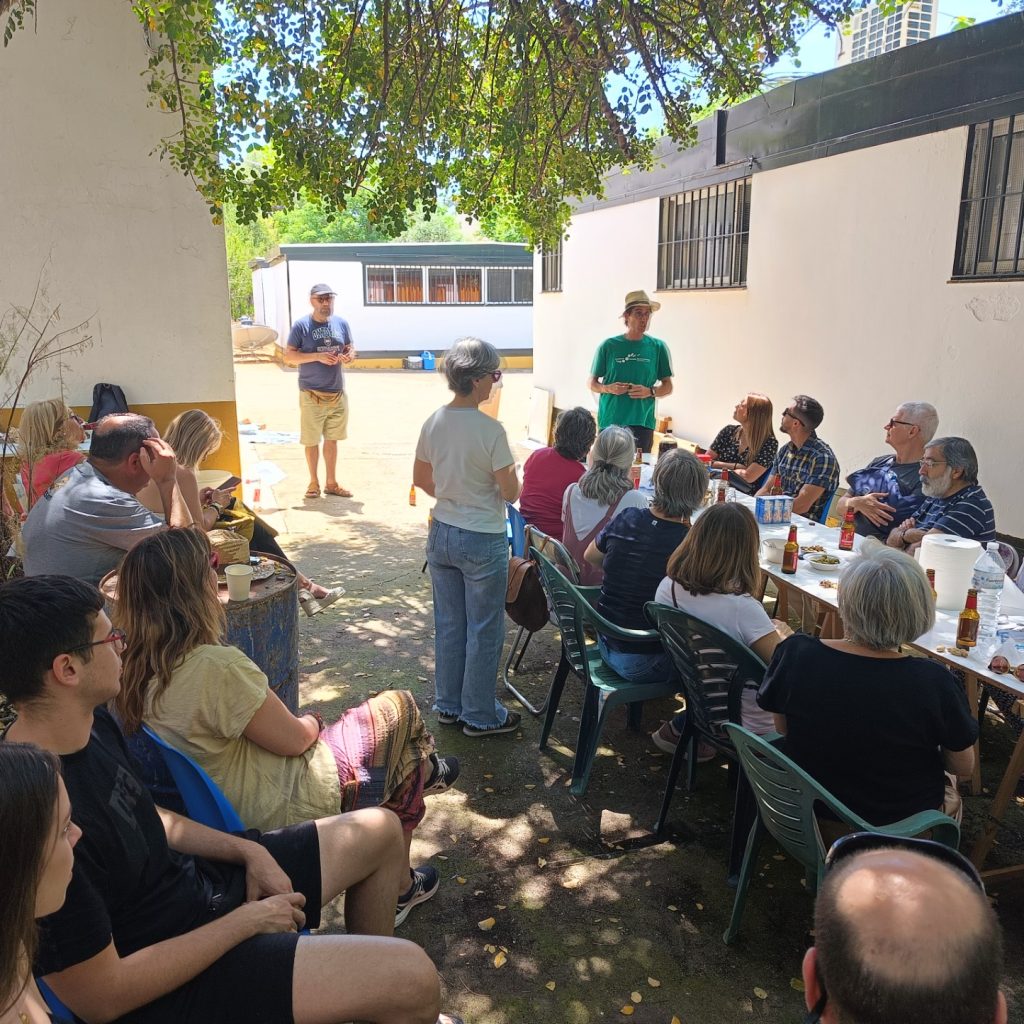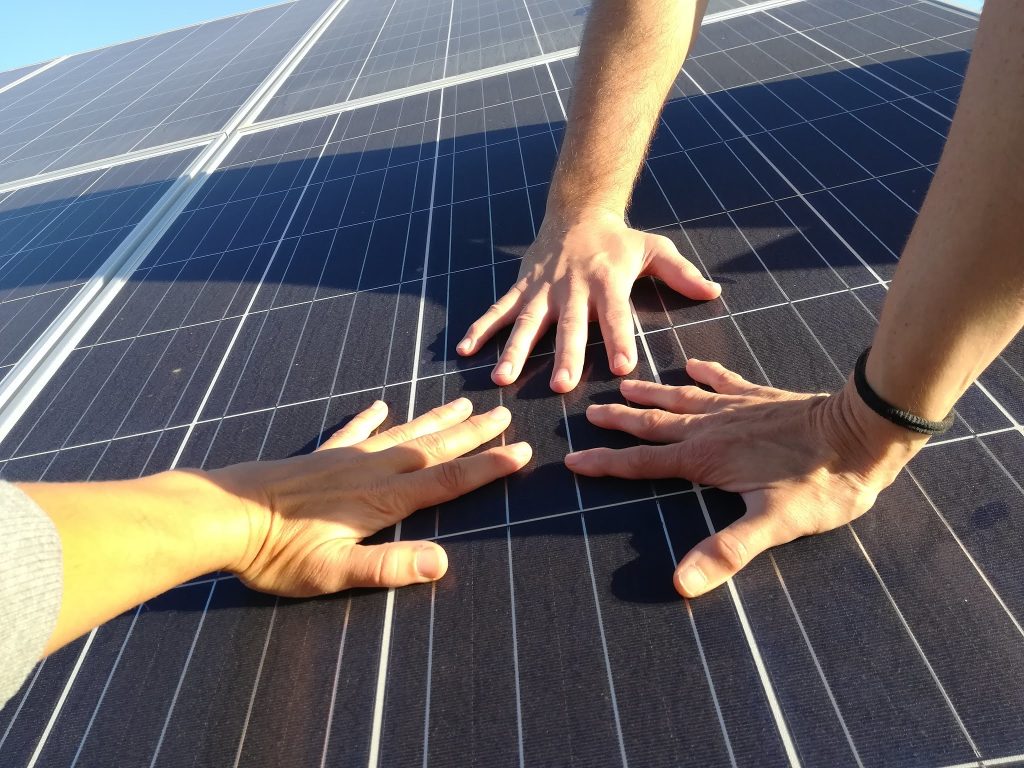Since the middle of the 20th century, many of the rural areas of Spain have been undergoing a significant depopulation process.
It is precisely in the fight against depopulation, and especially in municipalities with less than 100 habitants, where rural energy communities (RECs) have acquired greater prominence in recent years. (…) energy communities are positioned as “driving groups” for a fair, inclusive and democratic energy transition, considered as a fundamental vector for the structuring of rural communities and with a comprehensive approach linked to the demographic challenge.
(…) these initiatives should not be seen as short-medium term solutions to reverse demographic trends in depopulating municipalities. It is unlikely that they will correct the dynamics that have prevailed for decades in some areas of rural Spain; however, they do represent a viable strategy to mitigate the adverse effects of depopulation.
“As well as energy self-sufficiency, we want to enhance the pride of living in the land where we live, enable the generation of new jobs and thus attract new people who are willing to settle here”.
Member of the tractor team of “Luco Energía”.
Since the mid-20th century, many of Spain’s rural areas have been subject to a significant process of depopulation, a structural phenomenon that affects a large part of the European territory. In 2023, 84% of Spanish municipalities had fewer than 5,000 inhabitants, and of these, 20% were municipalities with fewer than 100 inhabitants. The demographic characteristics of these areas include high levels of aging, low fertility and masculinization.
This scenario has led national, regional and local governments to focus their attention on these territories, proposing strategies for territorial cohesion and environmental sustainability under the umbrella of the so-called Demographic Challenge and in line with the International Agendas for sustainable development (Agenda 2030 of the Sustainable Development Goals), the Paris Agreement on Climate Change and the New Urban Agenda. In this way, the symbiosis between the energy transition and the demographic challenge are understood as complementary processes designed to achieve the social, economic and environmental sustainability demanded by these territories. The National Strategy to Meet the Demographic Challenge (ENRD) emphasizes that it is essential to guarantee quality, affordable and sustainable energy services for the population and, in general, to promote renewable energies as an engine for development and job creation. In fact, in the Plan of Measures to Meet the Demographic Challenge, line of action 1 is dedicated to Promoting Ecological Transition.
It is precisely in the fight against depopulation, and especially in municipalities with less than 1,000 inhabitants, where rural energy communities (RECs) have acquired greater prominence. Most of them are supported not only by European funds, but also by the participation, as promoters in some cases and as partners in others, of the municipalities and local authorities, which understand that if an energy community is able to provide environmental, economic and social benefits to its partners or members, this may generate positive synergies from the territorial point of view, which can attract or fix population in the municipalities that are depopulating.

In this way, a large part of these small rural centers have aligned themselves critically against the model of renewable energy plant macro-projects, which generates negative impacts not only in relation to the disappearance of traditional activities, but also in terms of landscape alterations and even historical and cultural identity.
Photo: Meeting of members of the environmental group Alwadiira, energy community HERES and cooperatives Candela and SOM Energía – Alcalá de Guadaira, 2024.
The analysis of the experience of some energy communities already in operation in municipalities facing demographic challenges reveals the importance of these entities. They are perceived as key agents for the revaluation of territories, the generation of new jobs through the use of local energy resources, the promotion of sustainable mobility and the reduction of energy poverty. They are also contributing to the preservation of lost values, the implementation of memory and intangible heritage recovery projects and the strengthening of neighborhood relations.
From a demographic point of view, it should be noted that some municipalities have observed the arrival of new inhabitants. An illustrative case of this is Luco de Jiloca (Aragón), where after the implementation of the energy community (2023) three houses have been acquired by families without roots in the municipality and there are people who have applied for rental housing.
In this context, energy communities are positioned as “ motor groups” for a just, inclusive and democratic energy transition, considered as a fundamental vector for the structuring of rural communities and with a comprehensive approach linked to the demographic challenge. However, it is important to note that these initiatives should not be seen as short-medium term solutions to reverse demographic trends in depopulating municipalities. It is unlikely that they will correct the dynamics that have prevailed in some areas of rural Spain for decades, but they do represent a viable strategy to mitigate the adverse effects of depopulation and, to some extent, contribute to attenuate this phenomenon. It is remarkable how energy communities encourage citizen involvement (governance), strengthen the sense of community and belonging, promote cooperation between individuals, boost the local economy, favor the connection between neighboring towns and help people feel more rooted to their territory. In some cases, they even create intergenerational solidarity networks.
STEP Project works on the analysis of the impacts and benefits that energy communities generate in territories with demographic challenges, using a qualitative methodology that allows us to know the perception of the population involved. We are convinced that to mitigate depopulation it is essential that in these territories new models of energy governance are encouraged, rural women are empowered, young people are educated and trained to generate employment for them, the productive model is modified to promote rural development, public services and mobility are guaranteed, and new opportunities are generated to attract new settlers. The energy communities can play a leading role in all of this, they just need to be helped to get started.


